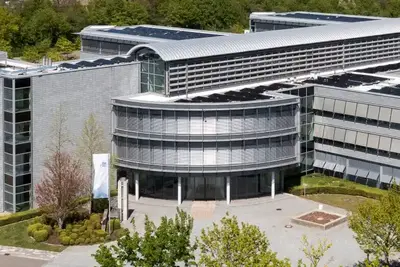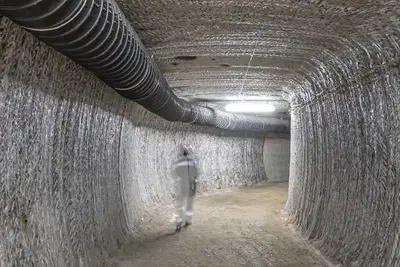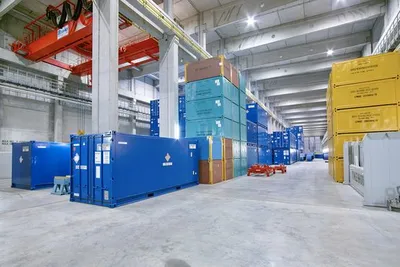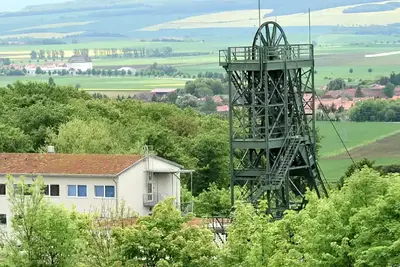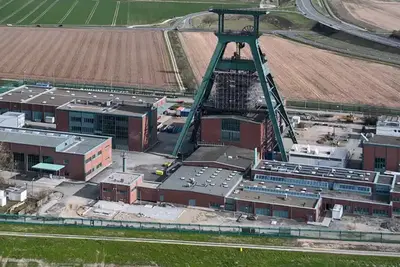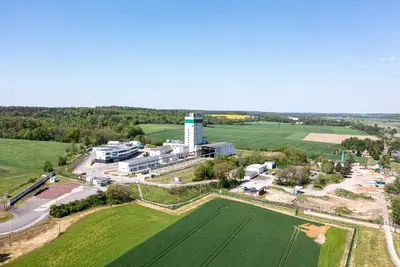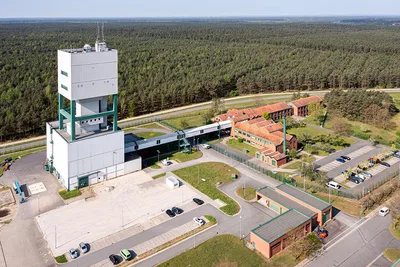Actors and tasks in relation to the Konrad repository
Article 73(1) of the Basic Law gives the federal government exclusive legislative power with respect to the disposal of radioactive substances. The responsibilities for the final disposal of radioactive waste are regulated in the Atomic Energy Act (AtG). Section 9a(3) of the Act assigns the task of constructing repositories for radioactive waste to the Federal Republic of Germany.
The federal government has delegated this task and the associated sovereign powers to the BGE. The federal government continues to play a supervisory role.
Among others, the following actors are involved in the construction of the Konrad repository:
Federal Ministry for the Environment, Climate Action, Nature Conservation and Nuclear Safety (BMUKN)
The Federal Environment Ministry (BMUKN) is a partner in the BGE and supervises the Federal Office for the Safety of Nuclear Waste Management (known as the Federal Office for Nuclear Disposal, BfE, until 31 December 2019) from a technical and legal perspective. It is the supervisory authority for corresponding activities on the part of the federal states. For technical advice, the Federal Environment Ministry can consult bodies such as the Commission on Radiological Protection (SSK) and the Nuclear Waste Management Commission (ESK), both of which are expert bodies that advise the Federal Environment Ministry on issues relating to radiation protection and nuclear waste management.
- Federal Ministry for the Environment, Climate Action, Nature Conservation and Nuclear Safety (BMUKN) (external link)
- Commission on Radiological Protection (external link)
- Nuclear Waste Management Commission (external link)
Federal Office for the Safety of Nuclear Waste Management (BASE)
Like the BGE, the BASE was founded as part of the reorganisation of final disposal activities in Germany. Working on behalf of the federal government, it is the regulatory and supervisory authority for the final disposal of radioactive waste and therefore also the supervisor of the Konrad repository under nuclear law. It is the licensing authority for all newly submitted repository projects in Germany.
Bundesgesellschaft für Endlagerung mbH (BGE)
The BGE is a federally owned company that the Repository Site Selection Act (StandAG) tasks with searching for, constructing and operating a repository for high-level radioactive waste materials. Since April 2017, it has also been the operator of the Asse II mine and the Konrad and Morsleben repositories.
The BGE is responsible for the construction and operation of the Konrad repository as well as its subsequent decommissioning.
Lower Saxony Ministry for Environment, Energy, Construction and Climate Protection (NMU)
The state environment ministry is the competent licensing authority and the highest water regulatory authority in Lower Saxony. It supervises the Lower Saxony State Office for Mining, Energy and Geology (LBEG) from an administrative and technical perspective. The NMU approves operating plans for the Konrad repository by issuing a decree to the LBEG.
Lower Saxony State Office for Mining, Energy and Geology (LBEG)
As an approval, licensing and supervisory authority under mining law, the State Office is also an immission control and waste management authority for activities and facilities that fall under mining authority control. The LBEG inspects the Konrad repository on a regular basis.
BGZ Gesellschaft für Zwischenlagerung
The bundeseigene Gesellschaft für Zwischenlagerung mbH (BGZ) was founded in 2017 to ensure the professional interim storage of radioactive waste in Germany. The sole shareholder of the BGZ is the federal government, as represented by the Federal Ministry for the Environment, Nature Conservation and Nuclear Safety (BMU). The BGZ initially took charge of the two central interim storage facilities in Gorleben and Ahaus. In 2019, the BGZ took over the operation of the interim storage facilities for high-level radioactive waste at the nuclear power plant sites, where it has also operated interim storage facilities for low- and intermediate-level radioactive waste since 2020. On the site of the decommissioned nuclear power plant in Würgassen, the BGZ is planning a logistics centre for the Konrad repository that is intended to facilitate transport to the repository and speed up the clearance of the decentralised interim storage facilities.
General public and others
As well as individuals, the broader definition of the general public also includes, for example, the City of Salzgitter and the surrounding municipalities, environmental associations and citizens’ initiatives, all of which have a legitimate interest in the work of the BGE.
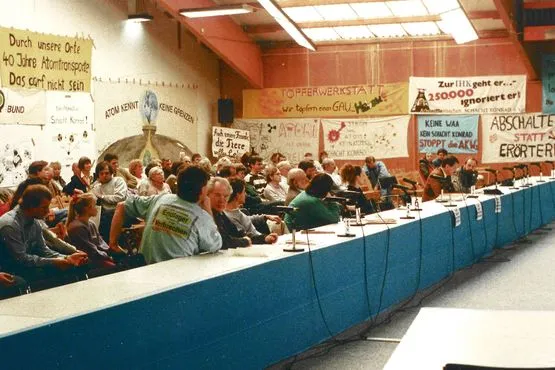
Numerous actors dealt with the objections during discussions regarding the Konrad repository in Salzgitter-Lebenstedt

